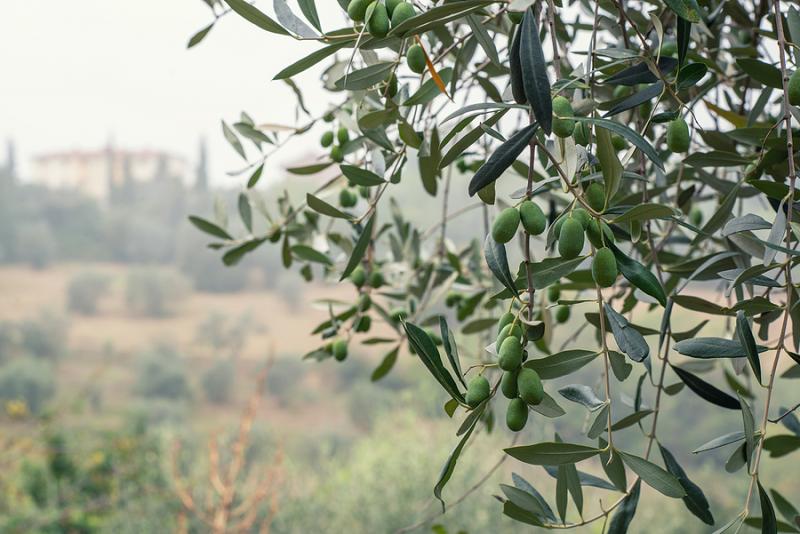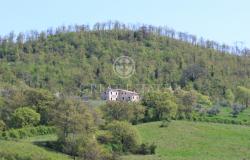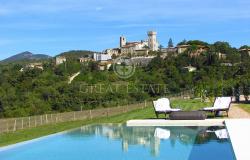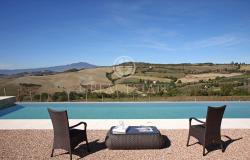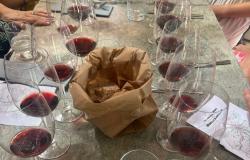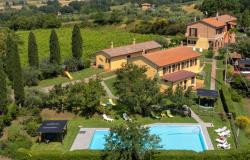Tuscany in Fall is hard to forget. After months spent welcoming tourists and taking well-deserved breaks on sunny seasides, attention is turned inwards.
You can almost feel the pace slowing as the crowds disappear. With no one watching, the locals spend the last of the good weather traipsing through the fields and foraging deep in the forests.
In years past, their finds were celebrated in ridiculously kitsch festivals where tipsy mayors crowned giant pumpkins and girls in short skirts danced alongside bacchanalian homemade floats. In the Maremma, at least, fall festivals are for the locals. They’re difficult for an outsider to understand but impossible to forget. It’s one of the rare times when a tourist can truly feel like they’re experiencing a slice of the Tuscan countryside, even if that slice involves almost murdering your next-door neighbour with a runaway wine barrel filled to the brim with water and rolled around the cobblestone streets at breakneck speed without the slightest consideration for health and safety.
COVID-19 has nixed this year’s festivals, but there is one fast approaching fall pastime that hasn’t been affected by the global pandemic – la raccolta delle olive (olive harvest).
Olives are part and parcel of life in country Tuscany. Everyone has a handful of trees. They are as ubiquitous as Vespas or failing to indicate around a roundabout.

My father-in-law, Fiorenzo, recently inherited 30 more olive trees and he tends each one with the utmost devotion. Olives are incredibly precocious. An unexpected hailstorm in February can destroy an entire harvest. So can a myriad of bugs and other pests. My Italian is far from perfect, but thanks to my suocero (father-in-law), I can bend your ear about the pros of copper as a pesticide for a good hour.
Olives are our thing. My husband is an only child and an engineer. He scorns the outdoors for the glare the sun casts on his laptop and he’s petrified of snakes. He will humour me with a solid 20 minutes of olive picking before miraculously remembering a super-urgent phone call that will keep him indoors for the rest of the day.
So every weekend before Halloween, I pull on my gumboots and become the son my father-in-law always wanted. I grew up in a nondescript suburb of Australia. My childhood backyard featured a lot of grass, a trampoline, and an apricot tree that never made any fruit. In adulthood, I have developed an affection for all things homegrown and harvested.
Picking olives is, frankly, a pain. Fiorenzo has an olive picker. The machine that looks a little like a Transformer arm was invented by an industrious young man who lives down the street, but it’s too heavy for me to use, so I settle for the traditional method – stripping the fruit off a handful at a time into an open beach umbrella.
Since I have a competitive streak and what can only be described as a death wish, I can’t resist scaling the very fragile olive trees to ensure every single fruit has been picked. The branches are delicate and any damage you do to the tree will come back to bite you in future harvests.

The fun doesn’t really start until you get to the frantoio (oil mill). Fiorenzo and I climb into his bright blue van packed almost to the brim with crates of olives. You have to press them straight after harvest or the olives will bruise and begin to rot. The smell of the fruit is intoxicating as my father-in-law spends the trip reminding me of all the reasons why you can’t trust our mill.
Fiorenzo has a lot of conspiracy theories about our mill. He’s not alone. You won’t meet an elderly Tuscan who’s not convinced the man who presses his olives, someone he’s known for the better part of three decades, is not also stealing some portion of his oil and replacing it with an inferior product.
I find the entire process magical. You only get a glimpse of the golden liquid as it rushes through the stainless steel channels into underground vats, but it always reminds me of Willy Wonka’s chocolate river. I have to use every ounce of self-control to stop myself from stick my hand into the oil.

The olives used to be crushed by a giant stone wheel pulled by donkeys. The oil would run down a stone channel into a series of wooden troughs. My father-in-law mistrusts the new system. Hence the aforementioned paranoia. He is convinced his olives are spirited away to some secret underground chamber to be sold to Michelin-starred restaurants.
The day always ends with some light-hearted bartering. The price of olive oil fluctuates year on year. The most recent ones have been difficult. Drought and unpredictable weather patterns have driven up the price, and you can choose to take the fruits of your labour and just pay the service fee or sell a portion of your oil to the press to cover the work they did crushing your olives.
My father-in-law never relinquishes a drop. His handful of trees only ever yields enough for his family and mine. There is nothing like just-pressed olive oil. It burns on your palette in the best way possible. The notes are fiery; fresh grass and artichokes and a bitterness that is an acquired taste. It is jealously hoarded for slices of homemade bread sprinkled with salt and grilled steaks. A reminder of days of hard work and hours spent alongside my father-in-law, listening to stories, and brushing up on the endless proverbs, delivered from between the branches in dialect with all the gravity in the world.
